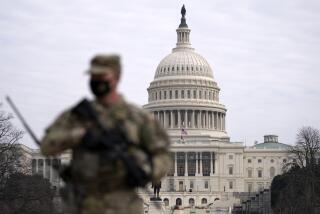HOUSE OF REPRESENTATIVES : Global Competitiveness in Manufacturing
The House passed and sent to the Senate a bill (HR 820) using the government as a catalyst to make U.S. manufacturing companies more globally competitive. The bill authorizes spending$1.54 billion over two years on programs such as Commerce Department outreach centers, funding large-scale research and development consortia, and providing research assistance and federal funds to individual companies.
Supporter Don Johnson (D-Ga.) called the bill “a major contribution toward restoring the manufacturing base in this country to world-class competitive standards,” particularly helpful to job-producing small and medium-size businesses.
The bill “looks, sounds and smells like industrial policy,” said opponent Robert S. Walker (R-Pa.). “The bill subsidizes the commercial development of a relatively limited number of federally chosen technologies (and) increases deficit spending.”
The vote was 243 for and 167 against. A yes vote was to pass the bill.
How They Voted Yea Nay No vote Rep. Harman (D) x Rep. Horn (R) x Rep. Tucker (D) x Rep. Waters (D) x
Amendment to Cut Commerce Spending Bill
The House rejected an amendment that would have cut 10%, or about $150 million, from the legislation (above) using an array of government programs to upgrade U.S. global competitiveness in manufacturing.
“This amendment gives members an opportunity to do more than just pay lip service to doing something about the deficit,” said its sponsor, John J. Duncan Jr. (R-Tenn.).
Opponent Tim Valentine (D-N.C.) said the amendment would “deny the President the opportunity to carry out his mandate” to revive the American manufacturing base.
The vote was 208 for and 213 against. A yes vote was to trim 10% from the $1.54-billion measure.
How They Voted Yea Nay No vote Rep. Harman (D) x Rep. Horn (R) x Rep. Tucker (D) x Rep. Waters (D) x
Amendment to Channel Benefits to Citizens
The House adopted an amendment preventing the $1.54-billion manufacturing competitiveness bill (above) from directly funding those who are not U.S. citizens or legal residents.
“If we are going to expend this kind of money . . . we ought to expend (it) on people who are citizens of the United States of America,” said Mac Collins (R-Ga.), who sponsored the amendment.
Opponent Tim Valentine (D-N.C.) objected that the amendment “gets us over into immigration policy of the United States.”
The vote was 263 for and 156 against. A yes vote was to limit competitiveness funding to U.S. citizens and legal residents.
How They Voted Yea Nay No vote Rep. Harman (D) x Rep. Horn (R) x Rep. Tucker (D) x Rep. Waters (D) x
Acquisition of Forest Land
The House passed and sent to the Senate a bill authorizing acquisition of 80,000 wilderness acres immediately north of Yellowstone National Park at a cost of $12 million to $20 million.The government would use exchanges or cash to acquire the land from a private company that could soon begin harvesting its timber. The acreage would be protected as part of the Gallatin National Forest in Montana.
“If this legislation isn’t enacted we face a public lands disaster on Yellowstone National Park’s northern border” in the near future, said sponsor Pat Williams (D-Mont.).
Opponent Dan Burton (R-Ind.) said “the world is not going to come to an end if the government does not buy another 70,000 acres when we already own one-third of the nation, (or) if they develop that and put some housing up there in a responsible, ecologically well-thought-out way.”
The vote was 317 for and 101 against. A yes vote was for passage.
How They Voted Yea Nay No vote Rep. Harman (D) x Rep. Horn (R) x Rep. Tucker (D) x Rep. Waters (D) x
Source: Roll Call Report Syndicate
More to Read
Inside the business of entertainment
The Wide Shot brings you news, analysis and insights on everything from streaming wars to production — and what it all means for the future.
You may occasionally receive promotional content from the Los Angeles Times.










